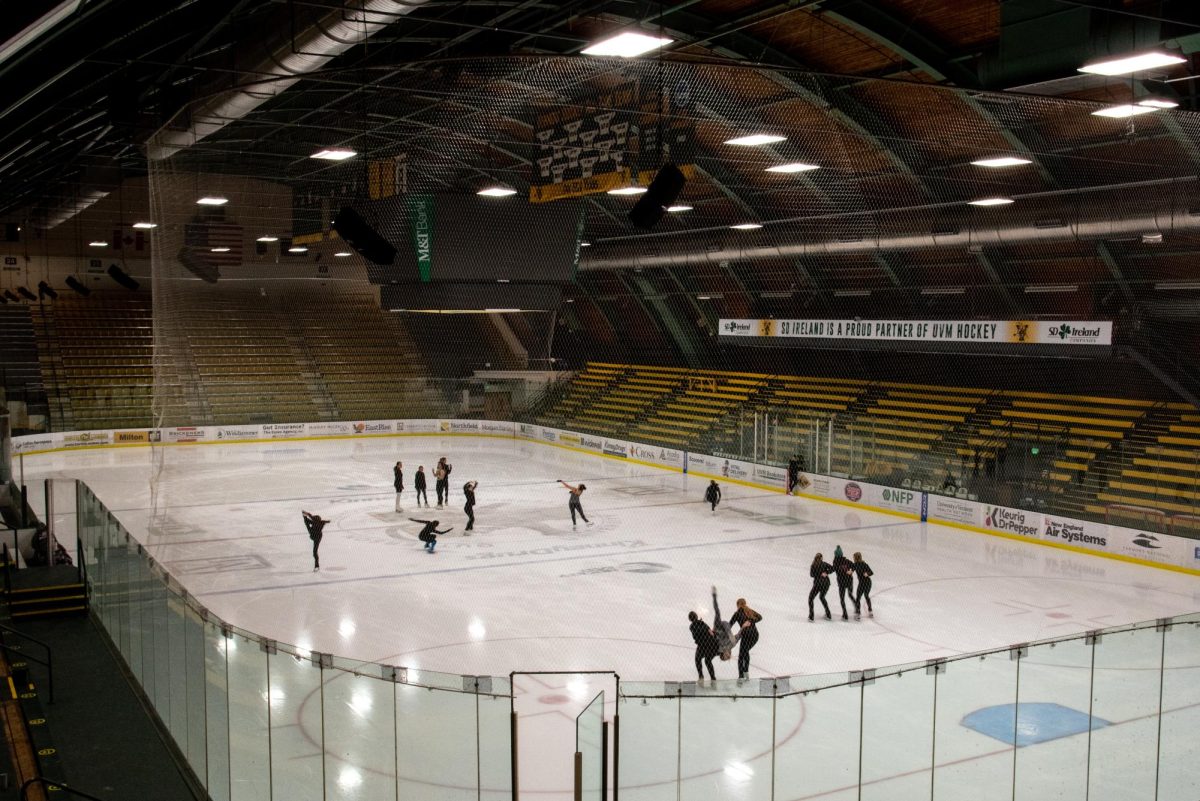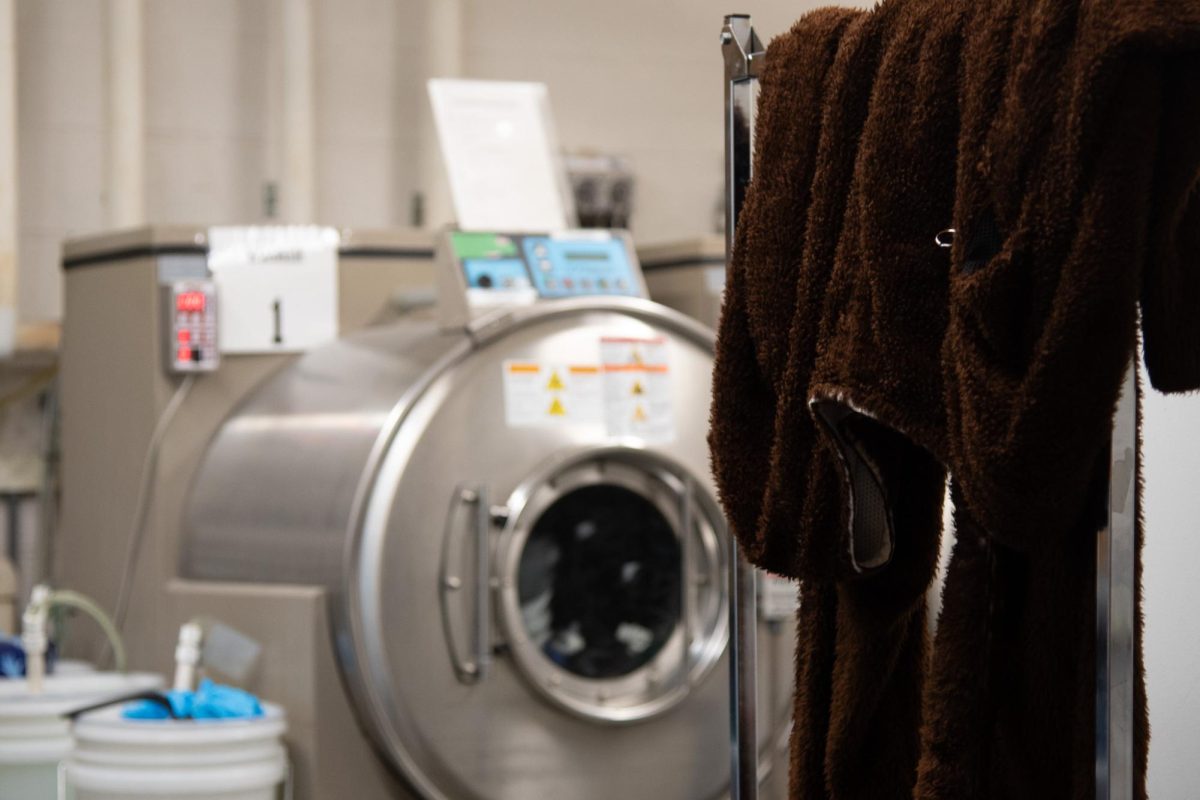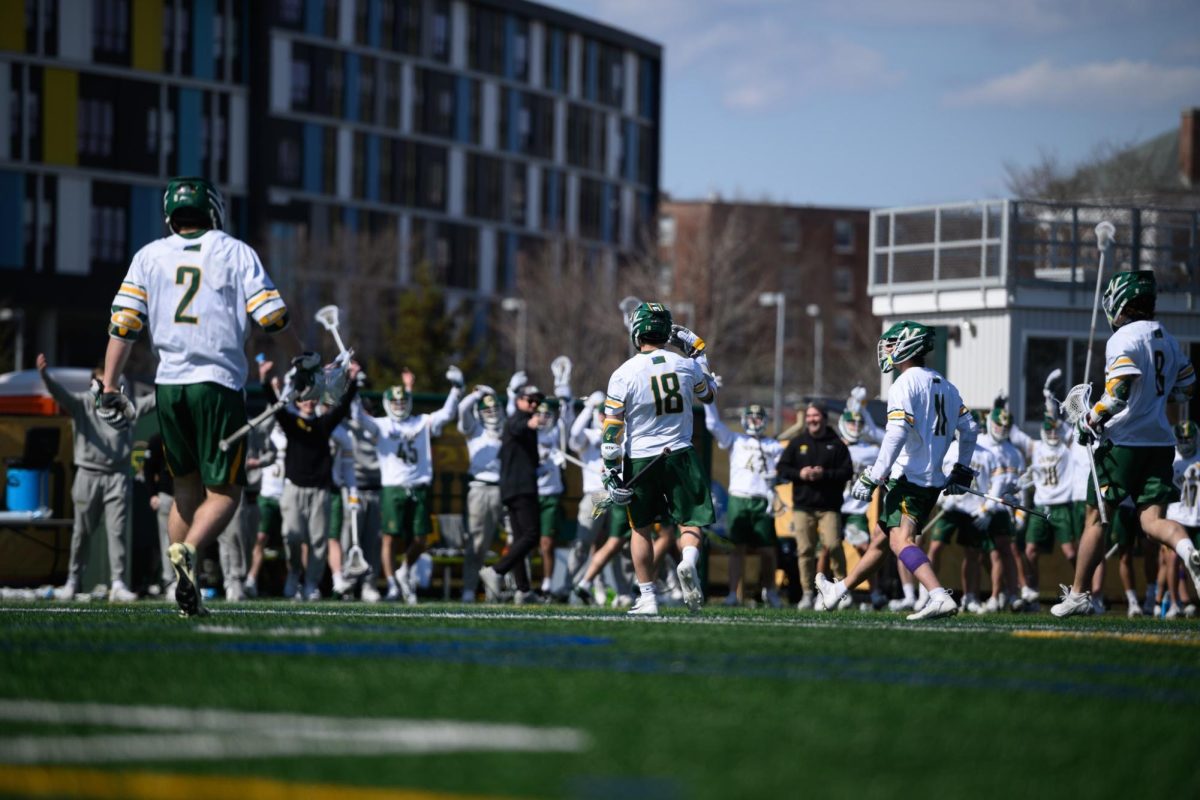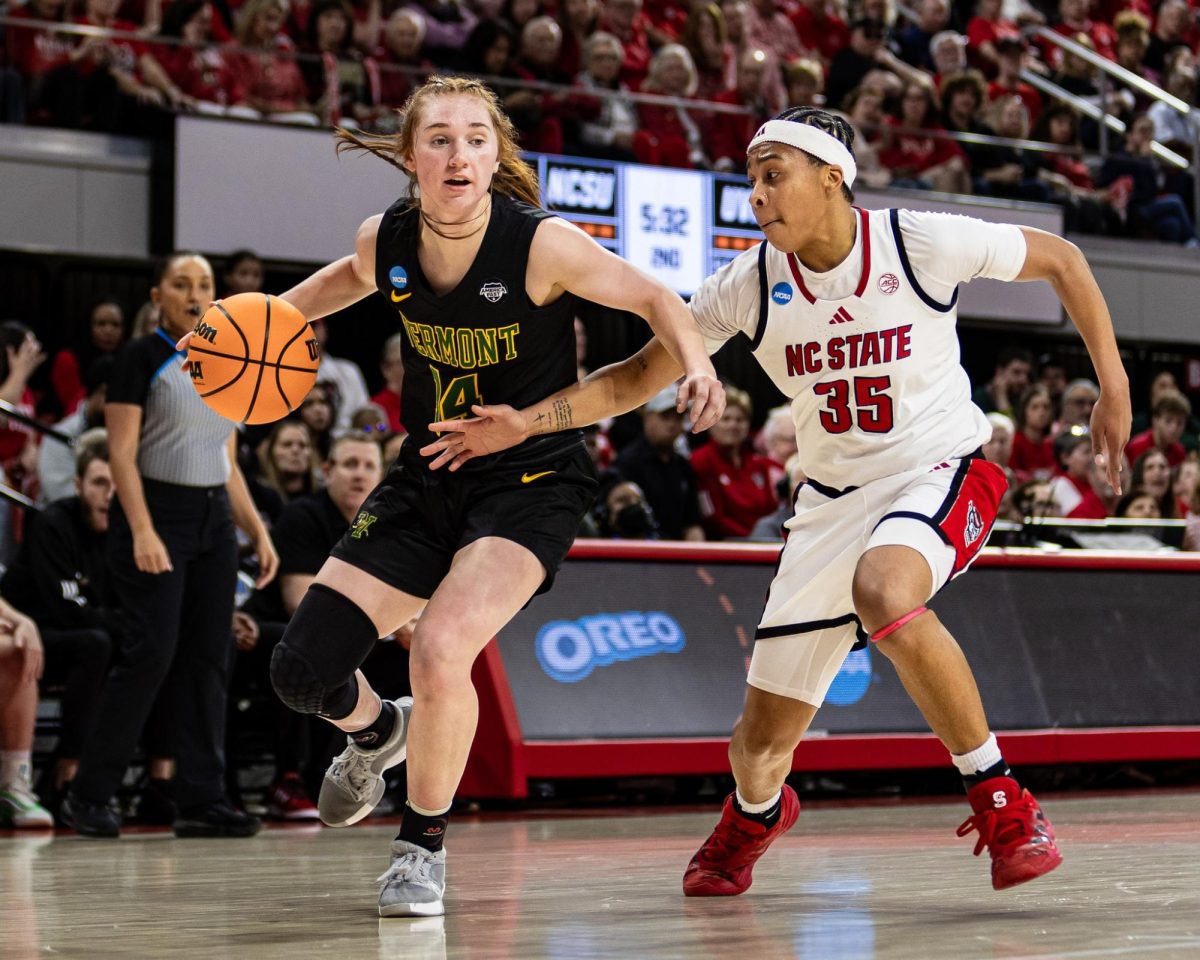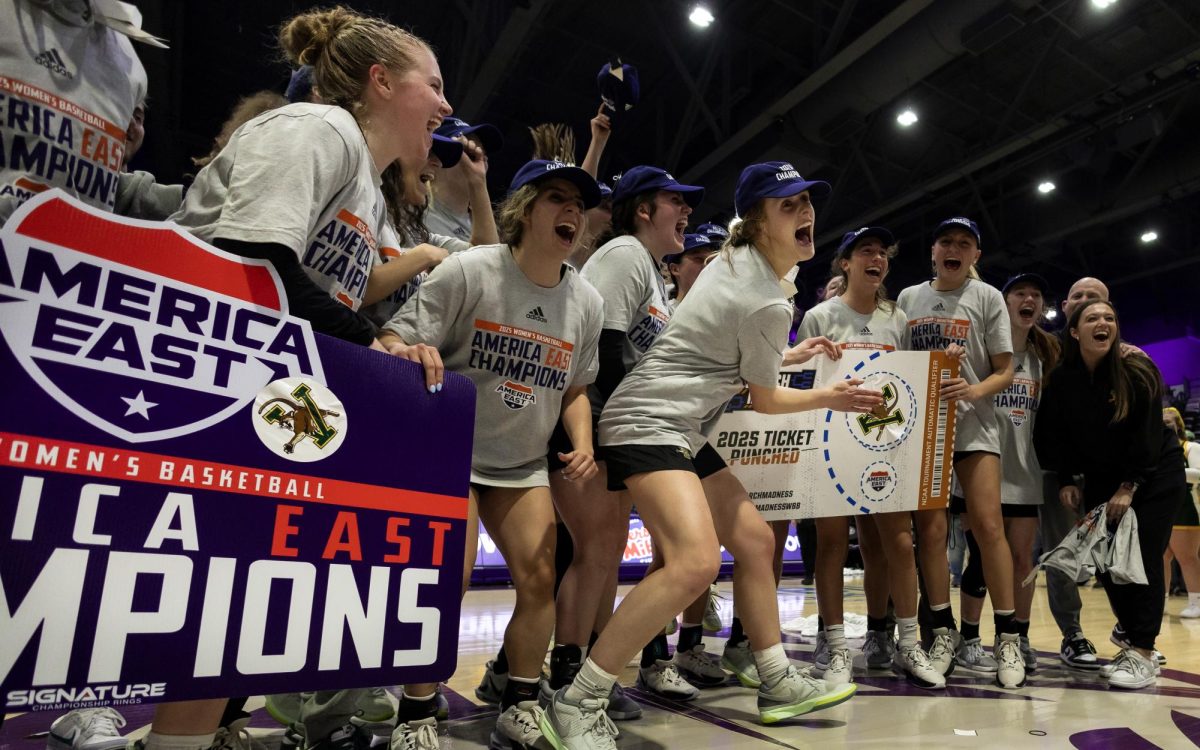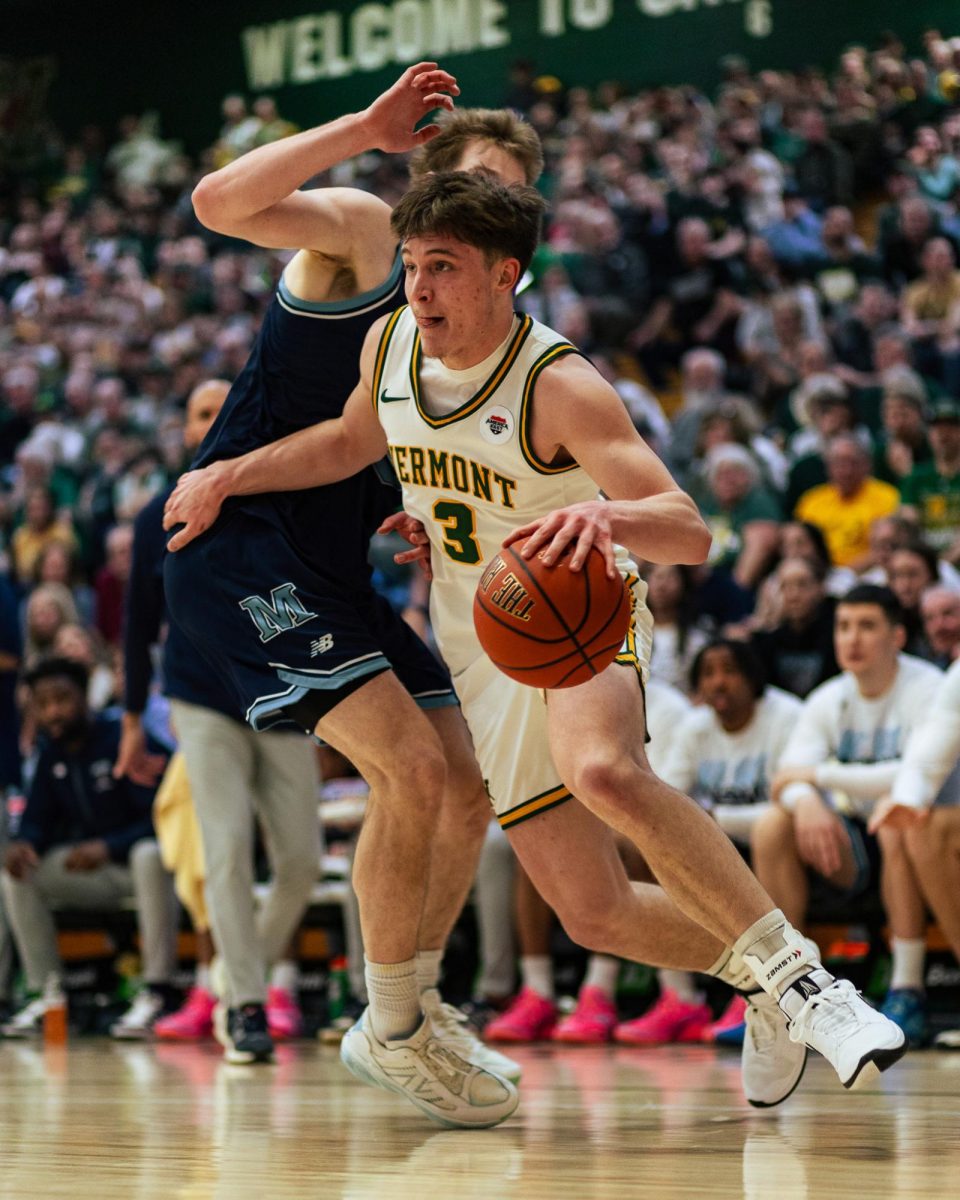Action sport athletes of all extremes live by one motto: go big or go home.
Catamount seniors Ethan Cole and Dan Sherry live life on the edge, one pedal at a time.
The two said they don’t choose to spend their free time lifting weights or playing video games.
The Connecticut natives would rather ride around on two wheels and hitting tricks around places on campus with their trick bikes.
Cole and Sherry do freestyle biking, also known as “bicycle motocross,” or BMX.
Their “stunts” include anything from jumping down staircases, to grinding on handrails and benches.
The most popular places to bike on campus are the library steps, loading docks and any sidewalk with a smooth concrete surface.
Basically, anything that is an abstract or obscure attraction under the sun is considered a “hot spot.”
“You see someone doing a trick and you’re immediately hooked ‘cause you think it’s the coolest thing in the world,” Sherry said.
Students may look at a stone wall or a cement block as an ordinary campus feature, but Cole and Sherry say they see them as props.
“It’s really cool to see kids of that level doing tricks on campus,” senior Alex Romac said. “You see that sort of thing on YouTube, but in person it’s much more impressive.”
Freestyle biking demands a tremendous amount of physical and mental energy, Cole said.
“Biking is a lot of mental psych – if there’s something I’m scared of I try to go and do it before I start thinking about it,” Cole said.
“Ninety-five percent of the time it’s all in your head,” Cole said.
The riders’ lifestyle is off-putting to some because of the risk of bodily harm, along with the cost of the equipment, Sherry said.
“You get a whole new skateboard setup for $180 and a full bike is anywhere from $1300-1400,” Cole said. “I think that’s what puts off a lot of people. It’s an expensive sport, but it’s worth it.”
The risk is worth the reward for these two adrenaline junkies, who say they spend more time on wheels than their own two feet.
“[Biking] is competitive, but in productive ways because it pushes the other person to step up and do something,” Cole said.
Although it may seem like all Cole and Sherry do is bike around campus, that couldn’t be further from the truth.
They also spend a large amount of time inside the classroom, making their school studies a priority.
“School definitely comes first, but we make schedules that keep afternoons open so we can fit in a few hours of riding on a normal class day,” Sherry said.
Cole said without a sponsor he sometimes questions the time he puts into his craft.
“It’s a really big commitment to be sponsored,” he said.
“Since I’m already in school, there are definitely times when I’m like, is this even worth doing,” Cole said.
“I could get really hurt and there’s not a company to support me,” he said.
Cole and Sherry understand they are students first and bikers second.
They know it’s essential to keep a equal balance between their education and recreation.
“Being seniors, me and Ethan obviously want to get good grades, but it’s our last year to enjoy being a kid on this awesome campus,” Sherry said.
Freestyle biking is beginning to shift its gears in the community.
“I think the progression of [biking] looks great,” said Mike Wierzbicki, manager of South Burlington’s Talent Skate Park.
“There are spots to ride around Vermont, like Essex, which has the new dirt jump track, and I hear about people just riding in the woods,” Wierzbicki said.
UVM currently has no official club that offers freestyle biking.
However, bikers and skateboarders gather every Monday from 6 to 8 p.m. at Talent Skate Park. For more information visit their website at talentskatepark.com.


